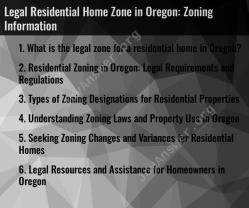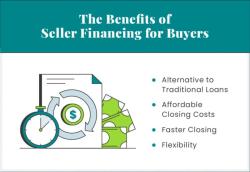Is it illegal to buy a house with cash?
Buying a house with cash is generally legal and permissible. In fact, many homebuyers choose to purchase properties with cash for various reasons, including simplicity, speed of the transaction, and the absence of mortgage-related processes. However, there are legal considerations and potential implications associated with a cash home purchase:
Source of Funds:
- It's important to ensure that the funds used for the cash purchase of a home have been obtained legally. If there are concerns about the legality of the source of funds, it could lead to legal issues.
Anti-Money Laundering (AML) Laws:
- In some jurisdictions, there are anti-money laundering laws that require financial institutions and certain businesses to verify the identity of individuals involved in significant financial transactions. While this is more relevant to banks and financial institutions, individuals involved in cash transactions may still be subject to scrutiny.
Reporting Requirements:
- In some cases, large cash transactions may trigger reporting requirements. Financial institutions may be required to report cash transactions over a certain threshold to relevant authorities.
Tax Implications:
- Cash transactions can have tax implications, and it's important to consider these when buying a home. For example, there may be capital gains tax implications when selling a property, and property tax considerations may apply.
Title and Ownership:
- Ensuring a clear and legal transfer of title is crucial in any real estate transaction. It's important to work with a qualified real estate professional and possibly an attorney to handle the paperwork and ensure a smooth transfer of ownership.
Seller's Preferences:
- While buying with cash is legal, sellers may have preferences or requirements related to the form of payment. Some sellers may prefer cash transactions, while others may prefer traditional financing.
Local Regulations:
- Local laws and regulations may vary, so it's essential to be aware of and comply with any regional or municipal requirements related to real estate transactions.
While buying a house with cash is legal, it's recommended to seek the guidance of real estate professionals, such as real estate agents and attorneys, to navigate the process successfully. These professionals can help ensure that the transaction adheres to legal requirements and that all necessary documentation is completed accurately. Additionally, consulting with a financial advisor or tax professional can help address any tax implications associated with a cash home purchase.
Legality and advantages of buying a home with cash
Buying a home with cash is a perfectly legal and common practice. It offers several advantages over financing a home purchase with a mortgage.
Advantages of buying a home with cash:
No mortgage payments: You won't have to make monthly mortgage payments, saving you a significant amount of money over the life of the loan.
Lower closing costs: Cash buyers typically pay lower closing costs than borrowers, as there are no fees associated with mortgage origination or underwriting.
Faster closing process: Cash transactions typically close much faster than financed purchases, as there is no waiting for loan approval.
Stronger negotiating position: Cash buyers often have a stronger negotiating position when making an offer, as sellers appreciate the certainty of a cash deal.
Owning your home outright: You will have immediate ownership of the property, without the burden of a mortgage.
Considerations and potential drawbacks of paying cash for a home purchase
While buying a home with cash has its advantages, it is important to consider potential drawbacks and ensure it aligns with your financial situation.
Considerations and potential drawbacks of buying a home with cash:
Large upfront cost: Buying a home with cash requires a significant upfront payment, which may limit your liquidity and ability to invest in other areas.
Opportunity cost: Investing a large amount of cash in a home purchase may limit your ability to invest in other potential opportunities with higher returns.
Potential tax implications: Depending on your tax situation, selling a significant asset like a home may trigger capital gains taxes.
Impact of financing options on interest rates, closing costs, and mortgage terms
The financing options available to homebuyers can significantly impact interest rates, closing costs, and mortgage terms.
Interest rates: Interest rates vary depending on the type of loan, credit score, loan amount, and market conditions. Higher interest rates lead to higher monthly mortgage payments and a higher overall cost of borrowing.
Closing costs: Closing costs are various fees associated with finalizing a home purchase, such as appraisal fees, title insurance, and lender origination fees. Closing costs can range from 2% to 5% of the purchase price.
Mortgage terms: Mortgage terms refer to the length of the loan, typically ranging from 15 to 30 years. Longer mortgage terms result in lower monthly payments but higher total interest paid over the life of the loan.
Alternative financing options for homebuyers, such as conventional loans, FHA loans, and VA loans
Conventional loans, FHA loans, and VA loans are common financing options for homebuyers. Each type of loan has its own eligibility requirements, interest rates, and closing costs.
Conventional loans: These loans are offered by private lenders and typically require a minimum down payment of 20% of the purchase price.
FHA loans: These loans are insured by the Federal Housing Administration (FHA) and allow for lower down payments, as low as 3.5%.
VA loans: These loans are guaranteed by the Department of Veterans Affairs (VA) and are available to eligible veterans, active-duty personnel, and certain surviving spouses.
Consultation with a financial advisor to determine the most suitable home buying strategy
Consulting with a qualified financial advisor can provide valuable guidance in determining the most suitable home buying strategy for your individual circumstances. They can assess your financial situation, evaluate your goals, and help you make informed decisions regarding financing options, down payments, and overall affordability.
A financial advisor can also assist in developing a long-term financial plan that balances homeownership aspirations with other financial goals, such as retirement savings and debt management.













